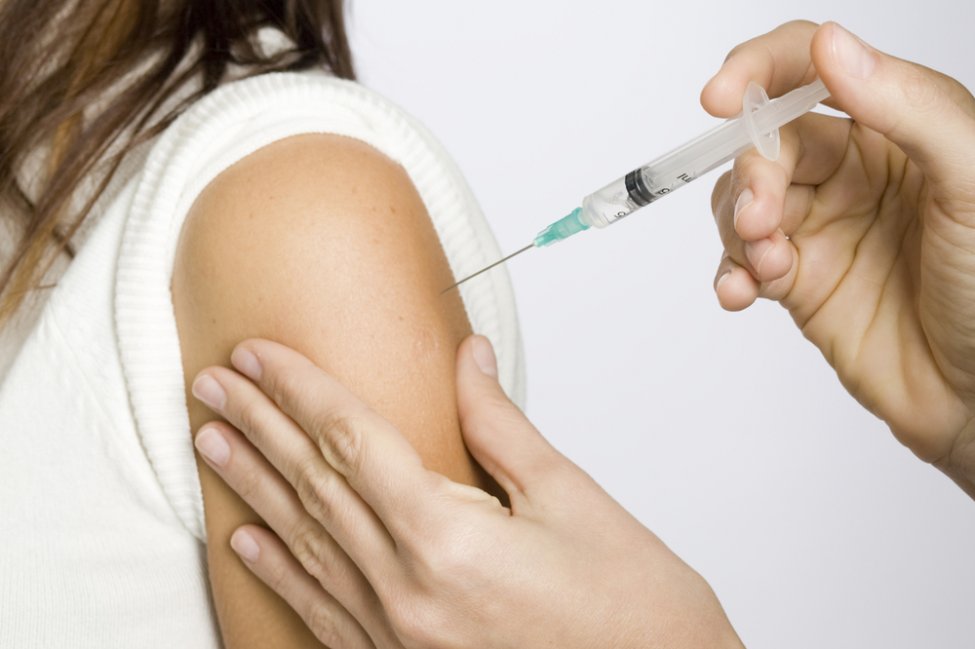Cervical cancer rates have dropped by as much as 87% in England since women started to receive the HPV vaccine there in 2008, new research shows. File Photo by Adam Gregor/Shutterstock
Nov. 3 (UPI) — Becoming vaccinated against the human papillomavirus, or HPV, reduces a woman’s risk for cervical cancer up to 87%, a study published Wednesday by the Lancet found.
By June 2019, about 450 fewer cases of cervical cancer and 17,200 fewer cases of cervical carcinomas, or pre-cancers, than expected occurred among women vaccinated between 12 and 13 years old in England from 2008 on, the data showed.
Cervical cancer rates were 62% lower in women vaccinated between ages 14 and 16 and 34% lower in those inoculated at ages 16 to 18 when the vaccine first was available, the researchers said.
“Although previous studies have shown the usefulness of HPV vaccination in preventing HPV infection in England, direct evidence on cervical cancer prevention was limited,” study co-author Peter Sasieni said in a press release.
“The observed impact is even greater than … models predicted,” said Sasieni, professor of cancer prevention at King’s College London.
HPV is the most common sexually transmitted infection in the United States, with about 43 million current cases, according to the Centers for Disease Control and Prevention. It has been linked with health complications ranging from genital warts to cervical cancer.
Though vaccines against HPV have been available in the United States since 2008, fewer than half of eligible adolescents have received the shots, the agency estimates.
The findings of this study are based using the HPV vaccine Cervarix, manufactured by GlaxoSmithKline.
The vaccine, administered in three doses, was approved in 2008 in England, where this study was conducted. It was used until 2012, and then replaced with Gardasil, made by Merck.
The Food and Drug Administration approved Cervarix for use in the United States in 2009.
A similar analysis published earlier this year found that cervical cancer rates in the United States have declined by up to 5% annually among women ages 20 to 64 over the past 17 years — since HPV vaccines have been available.
For this study, the researchers analyzed data on cervical cancer cases in England diagnosed between January 2006 and June 2019 among women ages 20 to 64.
Roughly half of the women included in the analysis were vaccinated with Cervarix between ages 12 and 18, the researchers said.
During the study period, nearly 28,000 women in the study population were diagnosed with cervical cancer and more than 318,000 were diagnosed with cervical carcinomas.
Among women vaccinated against HPV, there were roughly 450 fewer cases of cervical cancer than would be expected for the population, based on historical prevalence data, the researchers said.
In addition, 17,200 fewer cases of cervical carcinomas occurred than would be expected.
Cervical cancer rates fell by 87% among women vaccinated at ages 12 or 13, with 89% having received at least one dose of the HPV vaccine and 85% fully vaccinated, the data showed.
The rates dropped by 62% in women vaccinated at ages of 14 to 16 and by 34% among those inoculated at ages 16 to 18, 60% of whom received at least one dose and 45% of whom were fully vaccinated.
Rates of cervical carcinomas fell by 97% in women vaccinated at ages 12 and 13, by 75% in those vaccinated at ages 14 to 16 and by 39% in those vaccinated at ages 16 to 18 , according to the researchers.
“This represents an important step forwards in cervical cancer prevention,” study co-author Dr. Kate Soldan said in a press release.
“We hope that these new results encourage uptake as the success of the vaccination program relies not only on the efficacy of the vaccine but also the proportion of the population vaccinated,” said Soldan, who heads Public Health England’s HPV surveillance program.
